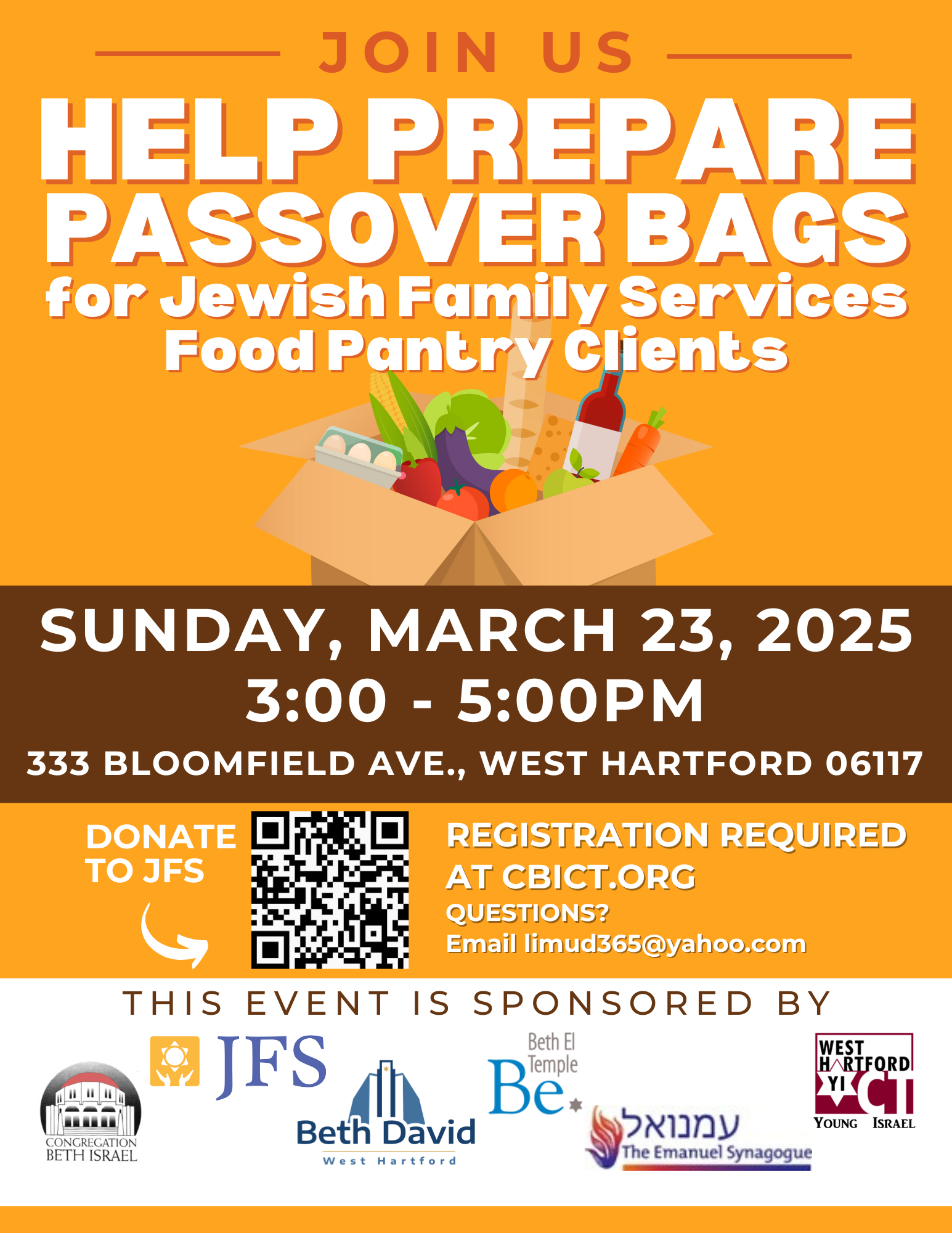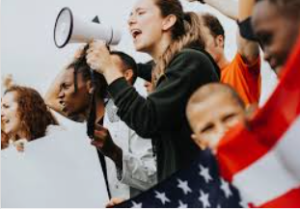
GHIAA (Greater Hartford Interfaith Action Alliance) was founded in 2019 and CBI was one of the founding congregations. Now, together with over 50 faith institutions, we organize for justice in the Greater Hartford region. This year’s issues include housing affordability, the state fiscal policy, and combatting religious and racial hate. Please CLICK HERE to read the latest update on the great work GHIAA and CBI are doing in and around our community. For more information about GHIAA, contact Judy Levy: judyglevy@gmail.com, 860-924-8748 and Sue Fulleton: suef4940@gmail.com, 860-810-0027, GHIAA CBI Core Team Co-Chairs.
Volunteer with Foodshare’s Mobile Truck
Fridays at 1:00pm, April 4, May 2 & 30
Join us in our front driveway and help distribute food from Foodshare’s mobile truck. Contact Pat Pierce at bookfanpat@gmail.com or Kim Howe at kimjhowe1211@gmail.com with questions.
Become a Reading Mentor through the Children’s Reading Partners
Join the dozens of CBI congregants who have enriched the program over the past 25+ years and helped kids realize the power and joy of reading. Contact Ronnie Brieter through www.jewishhartford.org/childrens-reading-partners
Cook for Loaves & Fishes
Once a month we cook a meal in our kitchen for Loaves & Fishes. If you’d like to volunteer, please contact our office at 860-233-8215 or bethisrael@cbict.org.
CLICK HERE to go to our ‘Support Israel’ web-page which is continually being updated with information on community events, how to donate, education resources, and prayers for Israel.
From CBI’s Mental Health and Addiction Initiative:
Since October 7, we have all witnessed, via the media, mass murder and atrocities in Southern Israel that are reminiscent of some of the darkest periods in Jewish history. As we seek out ways to make an impact, we also need to protect our own mental health and our capacity to function. Please see below for additional articles to help:
War’s enduring legacy: How does trauma haunt future generations? https://www.apa.org/topics/trauma/trauma-survivors-generations
How to cope with traumatic stress
https://www.apa.org/topics/trauma/stress
Resilience in a time of war: Tips for parents and teachers of elementary school children
https://www.apa.org/topics/resilience/kids-war

Tzedakah
includes the more traditional service projects- Typically linked to highly effective partners, these include the back pack drive thru Covenant to Care for Children, the Yom Kippur Food drive, working in the Loaves and Fishes kitchen, joining in the community walk for Hunger, reading mentorship programs, just to name a few of many many rich programs that we have had in some instances for decades.

Advocacy
is something different. This refers to trying to get public support for a particular cause. Over the years many of you have joined forces on the steps of the capital to be heard on one cause or another. You have gone to rallies, some have testified in public hearings. We have had legislators come and speak and listen to our concerns and we have joined in a number of Religious Action Center campaigns.

Community Organizing
is yet a different animal. This refers to individuals who are directly affected by the issue at hand, banning together to make meaningful change. This is what our GHIAA (Greater Hartford Interfaith Action Alliance) initiative is all about. Through the leadership of our rabbis and a core team of 12 CBI members, trained by the Center for Leadership and Justice, GHIAA is now a powerful coalition of 40 faith groups including 9 synagogues working together on a handful of specific and actionable issues around housing, criminal justice reform, healthcare and education. Click HERE for GHIAA’s 2023 Issues Slate.
Here is what the reform movement and our Religious action center have to say on the most pressing
issues of our time:
https://rac.org/advocacy-activism-why-advocacy-central-reform-judaism
https://urj.org/what-we-believe
When you think about how to engage in social justice at CBI think about what are the issues you care
the most about and how do you choose to engage. Take a look below for a more complete description of all we do at CBI.
Our Mitzvah Day of 2023 was a wonderful day of service and community with five other synagogues. Volunteers of all ages gathered to make blankets, sandwiches, toiletry bags, and cards to benefit South Park Inn, Hands on Hartford, House of Bread, and Hoffman Summerwood Community. Thank you to everyone who volunteered and made donations!

Weekly and ongoing volunteer opportunities and drives to benefit those in need are included in our calendar at cbict.org/calendar and weekly Chai Lights e-newsletter. To subscribe to Chai Lights, please email bethisrael@cbict.org.
Regular volunteer opportunities are available through our partnerships with Foodshare and Loaves and Fishes‘ Soup Kitchen in Hartford. One Friday afternoon at 1pm each month volunteers help distribute food from Foodshare’s mobile truck at CBI. Also once a month, volunteers cook a meal at CBI and it is then delivered to Loaves and Fishes. Check cbict.org/calendar for the most up-to-date volunteer opportunities.